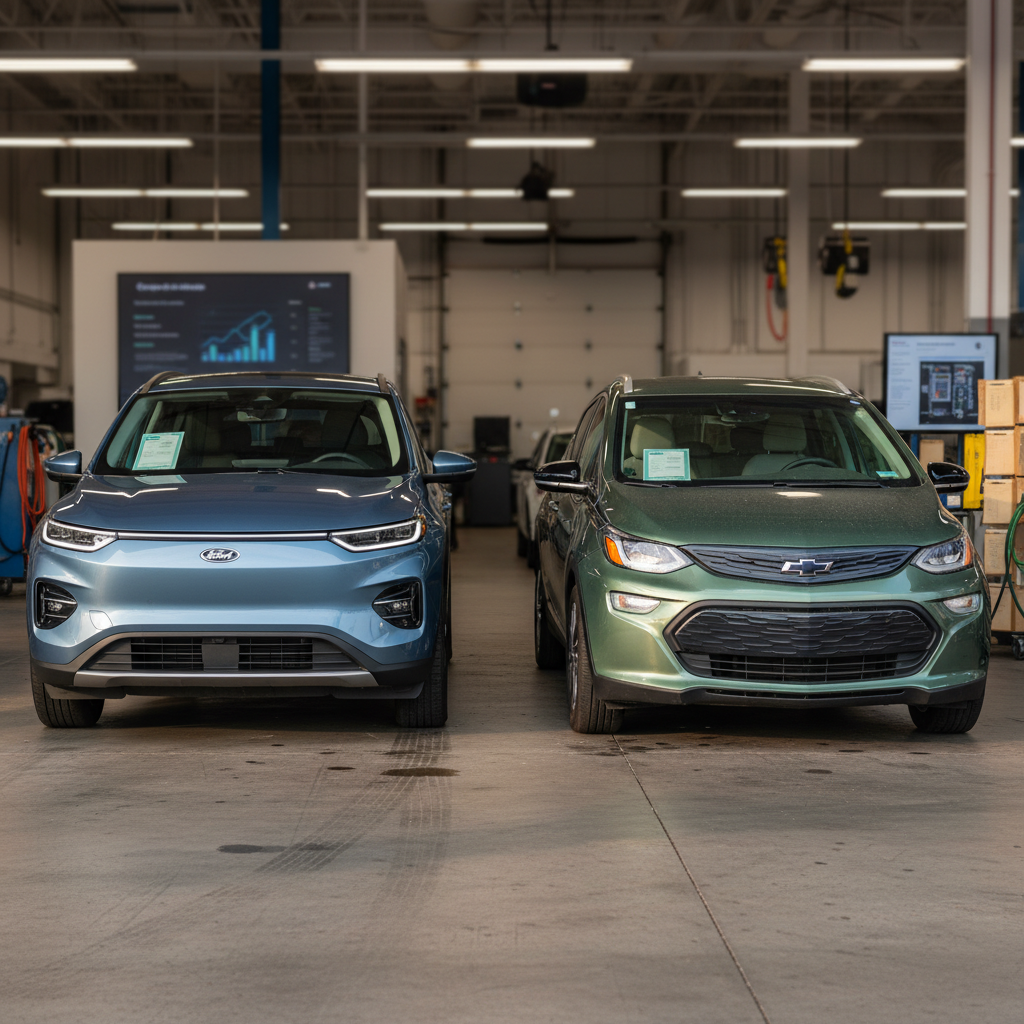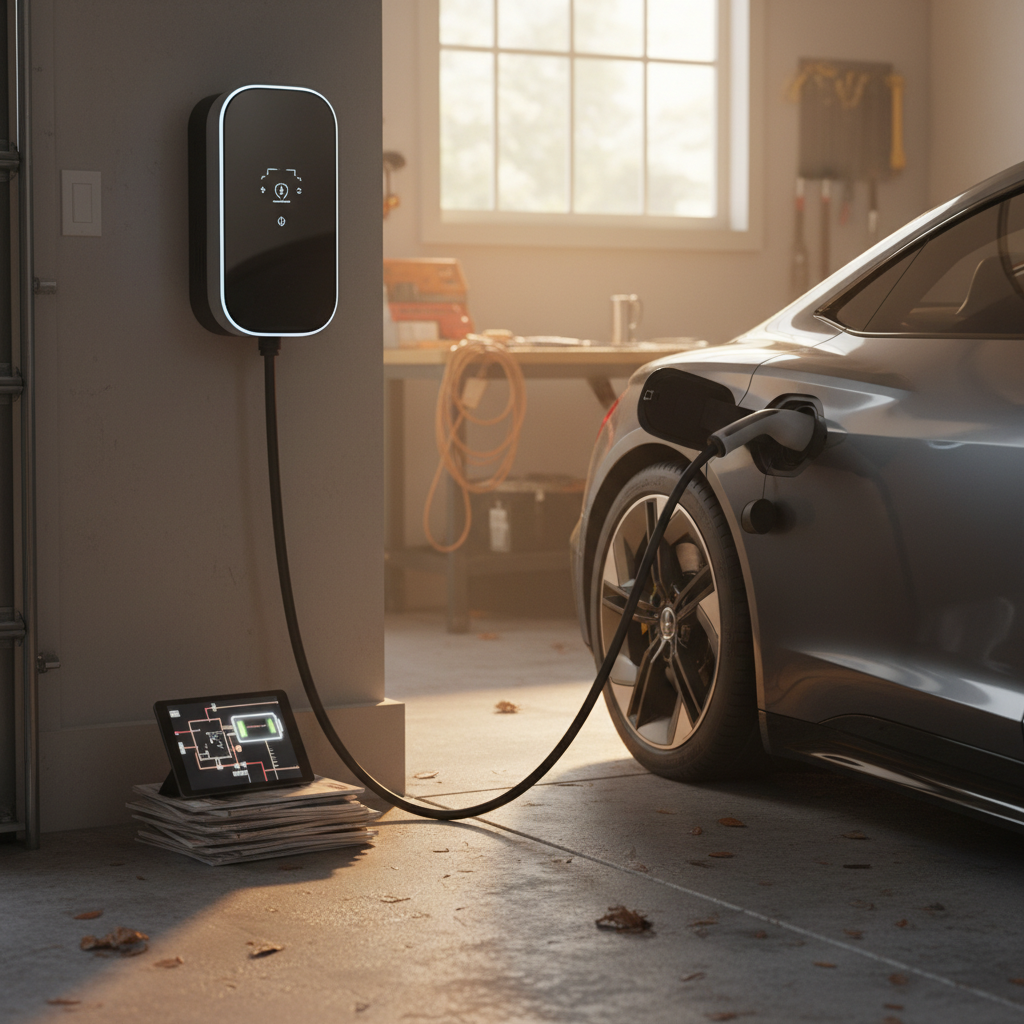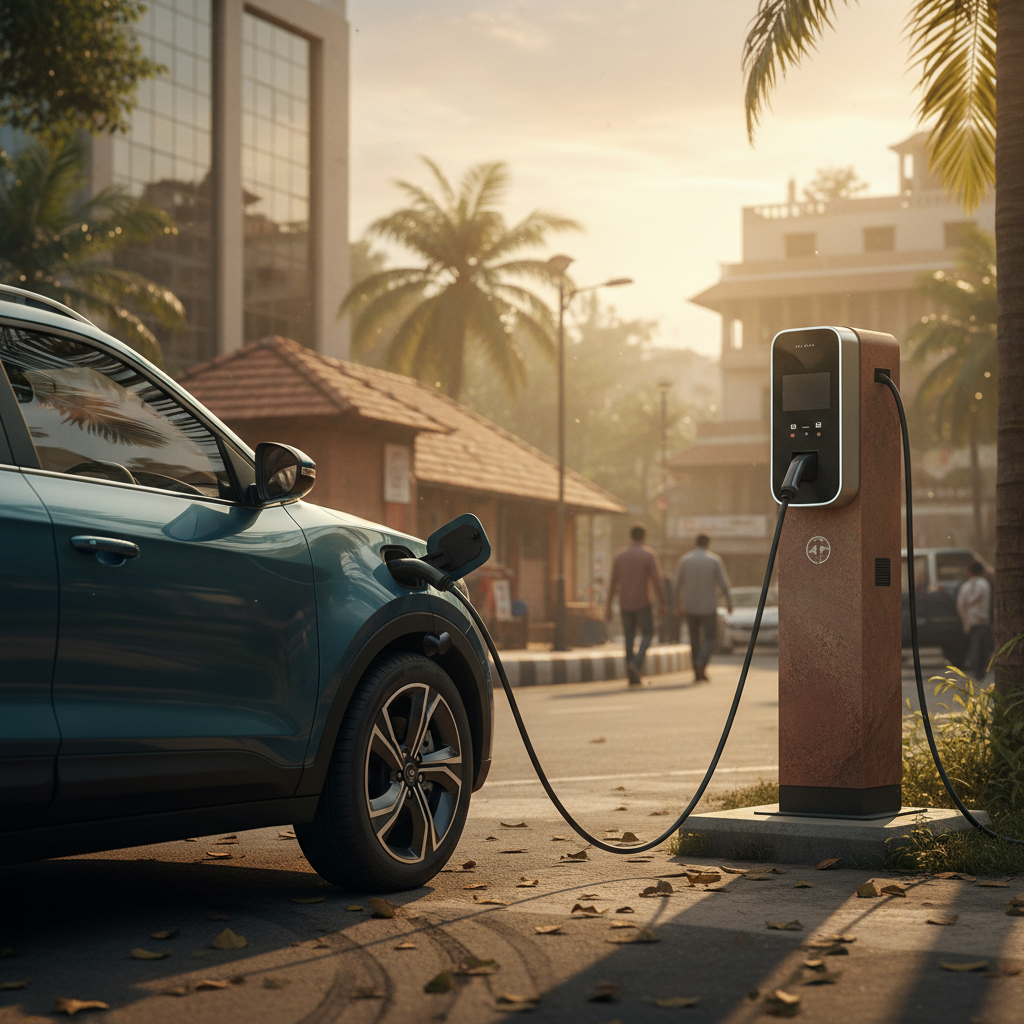If you’ve heard horror stories about Chevy Bolt battery replacement cost, you’re not imagining things. In 2025, replacing a Bolt EV or EUV high‑voltage battery can run well into five figures, sometimes high enough for insurance to total the car. The good news: many Bolt owners never pay that bill, thanks to generous battery warranties and the big recall. The key is knowing which group you’re in.
The very short answer
Chevy Bolt battery replacement cost: quick overview
Chevy Bolt battery costs at a glance (2025)
When people talk about "battery replacement" on a Bolt, they usually mean the large high‑voltage pack (60–66 kWh) that powers the car. That’s the expensive one. The small 12‑volt accessory battery is more like a regular car battery and usually runs a few hundred dollars installed, not tens of thousands.
Don’t confuse the two batteries
Why Chevy Bolt battery costs vary so much
Two Bolt owners can get wildly different quotes for what sounds like the same repair. That’s because the final number depends on several factors: whether the issue is covered by recall or warranty, whether the whole pack or just modules are replaced, how much collateral damage there is, and which labor rate your local dealer or EV specialist charges.
4 big levers that change your Bolt’s battery bill
These are the questions a service advisor or insurer works through before you see a dollar amount.
1. Warranty & recall status
If your Bolt is still within the 8‑year/100,000‑mile high‑voltage battery warranty or covered by the well‑known battery recall and associated settlement, the battery itself and labor are often covered.
That can turn a $15,000–$18,000 repair into a $0 bill.
2. Pack vs. module replacement
Some repairs swap individual battery modules, others replace the entire pack. A full pack replacement is the most expensive scenario, but it’s also what many recall‑related repairs use.
3. Labor hours & shop rate
A relatively clean pack swap might take 4–6 hours. Any corrosion, collision or water damage can easily push that to 10+ hours. At $150+ per hour, labor adds up fast.
4. Cause of the damage
Batteries that fail due to defects are treated differently from packs damaged by potholes, debris or water intrusion. Defect = likely warranty. Physical damage = often insurance, or your own wallet.

When a Chevy Bolt battery replacement costs $0
Let’s start with the best‑case scenario: when GM pays. Most Bolt owners who’ve had their packs replaced because of defects, recall campaigns, or settlement terms didn’t pay anything out of pocket for the high‑voltage battery or the labor to install it.
- Your Bolt is within GM’s standard 8‑year/100,000‑mile EV battery warranty. That coverage applies to the high‑voltage pack and related components when they fail due to defects.
- Your car is part of the Bolt EV/EUV battery recall campaign, and GM or an authorized dealer replaces the pack or modules under that field action.
- The software monitoring update flags your pack within the specific mileage and date windows set by the class‑action settlement, triggering a free pack replacement and, in some cases, an extended parts warranty on the new pack.
- You experience a battery failure that GM agrees is covered by the high‑voltage battery warranty rather than collision or misuse.
Check your coverage in minutes
Many 2017–2019 Bolts had their entire battery pack replaced under the recall, often with a new 8‑year/100,000‑mile parts warranty starting from the replacement date. Later‑model Bolts have slightly different rules, some replacements reset the warranty clock, others only carry the remaining original coverage, depending on why and when the pack was replaced.
Out-of-warranty Chevy Bolt battery replacement costs
Now for the uncomfortable part: what if your Bolt’s battery fails or is damaged after the warranty and recall safety nets are gone, or for a reason they don’t cover? This is where you start seeing the eye‑watering numbers.
What owners and shops report for Bolt battery replacement
These ranges summarize pricing mentioned by repair shops, legal sites and owner anecdotes through late 2025. Exact costs vary by dealer, state, and parts availability.
| Scenario | What’s being replaced | Typical parts cost | Labor range | Total ballpark |
|---|---|---|---|---|
| Basic pack swap at EV‑savvy shop | Complete high‑voltage pack (reman or service unit) | $7,000–$9,000 | $675–$1,200 | $8,000–$11,000 |
| Dealer replacement out of warranty | New OEM pack, no recall/warranty coverage | $10,000–$16,000+ | $900–$2,400 | $11,000–$18,000+ |
| Severe damage (water, impact) | Pack plus related components, diagnostics | $12,000–$16,000+ | $1,500–$3,000 | $15,000–$19,000+ |
| 12‑volt battery only | 12‑volt accessory battery | $150–$350 | $30–$150 | $180–$500 |
Use these as ballparks, not quotes, your actual bill will depend heavily on your specific car and situation.
When the battery totals the car
Bolt battery warranty and recall fine print
GM’s own EV FAQ describes an 8‑year/100,000‑mile battery warranty on Chevy EVs, including the Bolt. In practice, the Bolt’s battery coverage story has a few extra layers thanks to the recall and subsequent legal settlement, and those details matter when you’re trying to predict future costs.
Warranty basics most Bolt owners rely on
Standard EV battery warranty
New Bolts come with an 8‑year/100,000‑mile limited warranty on high‑voltage battery components. It covers defects in materials and workmanship, not collision damage or misuse.
Recall & settlement extras
The Bolt battery recall and later settlement added special rules, like extended parts warranties on some replacement packs and specific mileage/time windows when a software‑detected defect triggers a free replacement plus new warranty.
A few nuances are worth calling out: - Some early‑generation Bolts that received full recall packs got a fresh 8‑year/100,000‑mile parts warranty starting from the replacement date. - Later‑model Bolts may get a replacement that simply continues the original warranty clock, unless the replacement happens within the defined settlement window. - Owner stories from 2024–2025 show that dealers and GM sometimes interpret these rules differently, so having documentation (letters, settlement language, warranty certificates) is essential if you’re pushing for coverage.
Ask for the "battery warranty certificate"
Battery replacement vs totaling the car
On paper, a $16,000–$18,000 battery replacement on a five‑ or six‑year‑old Bolt looks absurd. In reality, insurers don’t care whether the expensive part is an engine or a battery, they care whether the repair is a big enough percentage of the car’s value to justify totaling it.
When the Bolt is worth more than the battery
- If your Bolt is fairly new, low‑mileage, and has strong resale value, insurers are more likely to approve an expensive battery replacement instead of totaling it.
- If a pack fails due to a covered defect, GM typically handles the cost anyway, so insurance never gets involved.
When the battery quote triggers a total loss
- On older Bolts, a high quote (say $18,000) can exceed 70–80% of the car’s actual cash value, which is where many insurers draw the line.
- Water intrusion, like driving through standing water that seeps into the pack, is a common scenario where a Bolt with minor exterior damage ends up totaled because the pack must be replaced.
Be cautious with deep puddles and floods
Should you buy a used Bolt with limited battery warranty?
All of this raises a fair question: is buying a used Bolt in 2025 a smart move if the battery warranty is short, or already expired? The answer depends on the specific car in front of you, not just the model year printed on the window sticker.
Checklist for evaluating a used Chevy Bolt’s battery risk
1. Confirm remaining battery warranty
Use the VIN to check GM’s recall/warranty site or ask a dealer. You want to know the exact expiration date and mileage of the high‑voltage battery warranty, plus whether a recall pack reset that clock.
2. Ask if the pack has been replaced
A recall or settlement replacement can be a good thing: you get newer hardware and, in many cases, a fresh or extended battery warranty. Ask for documentation of when and why it was done.
3. Look for battery health documentation
Range readouts and guess‑o‑meters are rough tools. A proper <strong>battery health report</strong>, like the Recharged Score that includes capacity testing, gives a clearer picture of how much of the original kWh capacity remains.
4. Review charging history and habits
Frequent DC fast charging and always charging to 100% aren’t death sentences, but a car that’s been fast‑charged daily and stored hot will typically show more degradation than one driven mostly on moderate commutes and Level 2 charging.
5. Inspect underbody and service history
Ask a shop or seller to show you the underside of the car or photos. You’re looking for signs of impacts, scrapes on the pack, or water/flood damage, any of which can complicate future insurance claims or coverage.
6. Compare price to worst‑case risk
If you’re buying a Bolt that’s nearly out of battery warranty, factor in the small but non‑zero chance of an expensive battery problem. Paying a bit more for a car with a fresh recall pack and long warranty may pencil out better than a "cheap" Bolt with a ticking clock.
How Recharged reduces your Bolt battery cost risk
The whole reason Recharged exists is that used EV shoppers don’t want a surprise $10,000–$18,000 battery bill hanging over their heads. A Chevy Bolt can be a fantastic, efficient hatchback with low running costs, as long as you understand its battery story before you buy.
Buying a Chevy Bolt through Recharged
How we make Bolt battery costs more predictable.
Verified battery health
Every Bolt sold on Recharged comes with a Recharged Score Report, which includes third‑party battery diagnostics. You see how the pack is performing today, not just what the window sticker says.
Warranty & recall clarity
We document each vehicle’s battery recall status and remaining warranty coverage, so you know whether you’re likely to pay $0 or face out‑of‑pocket costs if the pack ever needs attention.
Financing & trade‑in support
Because we understand EV residuals and battery risk, we can help you value a trade‑in, get financing, and decide whether a particular Bolt is priced fairly given its battery health and coverage.
You can shop entirely online, arrange nationwide delivery, or visit our Experience Center in Richmond, VA if you’d rather walk around a few Bolts in person and talk to EV specialists. Either way, the goal is the same: make the battery cost story clear before you sign anything.

Chevy Bolt battery replacement FAQs
Frequently asked questions about Chevy Bolt battery costs
Bottom line: what to do next
A Chevy Bolt battery replacement can range from a complete non‑event, handled quietly under warranty, to a five‑figure line item that totals the car. The difference usually comes down to timing, documentation, and how carefully you choose the car in the first place. If you already own a Bolt, your best move is to confirm your current battery warranty and recall status, keep good records, and treat the pack kindly. If you’re shopping for a used Bolt, make sure you see real battery health data and clear warranty history before you commit.
Recharged was built for exactly this moment in the EV market: lots of great used electric cars, and lots of questions about their batteries. Every Bolt we list includes a Recharged Score Report with verified battery health and pricing that reflects that reality, plus financing, trade‑in options, and nationwide delivery. That way, if you fall in love with a Bolt, the only surprise is how cheap your "fuel" bill gets, not an unexpected $15,000 battery quote a few years down the road.



